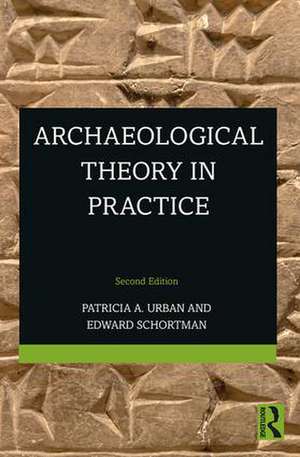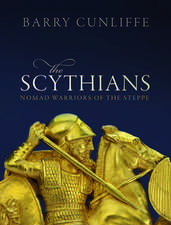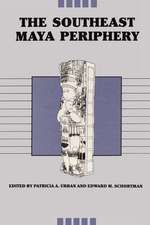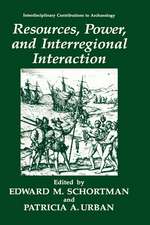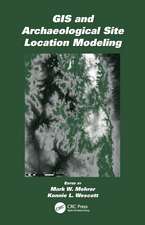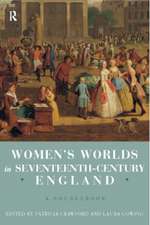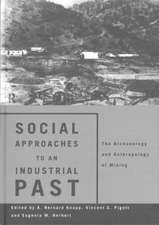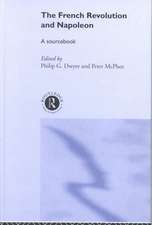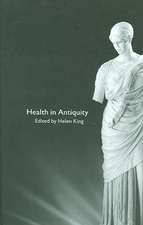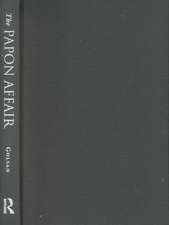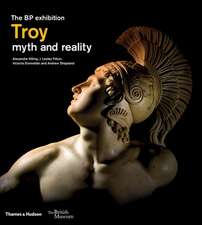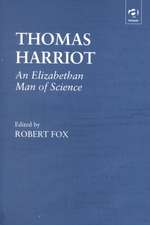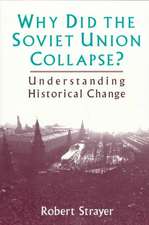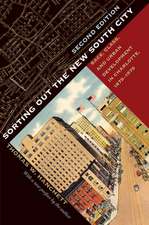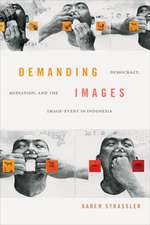Archaeological Theory in Practice
Autor Patricia Urban, Edward Schortmanen Limba Engleză Paperback – 6 feb 2019
This book bridges the gap between theory and practice by looking in detail at how the authors and their colleagues used theory to interpret what they found while conducting research in northwest Honduras. This is not a linear narrative. Rather, the book highlights the open-ended nature of archaeological investigations in which theories guide research whose findings may challenge these initial interpretations and lead in unexpected directions. Pursuing those novel investigations requires new theories that are themselves subject to refutation by newly gathered data. The central case study is the writers’ work in Honduras. The interrelations of fieldwork, data, theory, and interpretation are also illustrated with two long-running archaeological debates, the emergence of inequality in southern Mesopotamia and inferring the ancient meanings of Stonehenge.
The book is of special interest to undergraduate Anthropology/Archaeology majors and first- and second-year graduate students, along with anyone interested in how archaeologists convert the static materials we find into dynamic histories of long-vanished people.
| Toate formatele și edițiile | Preț | Express |
|---|---|---|
| Paperback (1) | 353.08 lei 6-8 săpt. | |
| Taylor & Francis – 6 feb 2019 | 353.08 lei 6-8 săpt. | |
| Hardback (1) | 1000.27 lei 6-8 săpt. | |
| Taylor & Francis – 25 feb 2019 | 1000.27 lei 6-8 săpt. |
Preț: 353.08 lei
Nou
Puncte Express: 530
Preț estimativ în valută:
67.57€ • 69.81$ • 56.20£
67.57€ • 69.81$ • 56.20£
Carte tipărită la comandă
Livrare economică 19 martie-02 aprilie
Preluare comenzi: 021 569.72.76
Specificații
ISBN-13: 9781138202801
ISBN-10: 1138202800
Pagini: 384
Ilustrații: 25 Line drawings, black and white; 2 Tables, black and white; 12 Illustrations, black and white
Dimensiuni: 156 x 234 x 20 mm
Greutate: 0.53 kg
Ediția:2nd edition
Editura: Taylor & Francis
Colecția Routledge
Locul publicării:Oxford, United Kingdom
ISBN-10: 1138202800
Pagini: 384
Ilustrații: 25 Line drawings, black and white; 2 Tables, black and white; 12 Illustrations, black and white
Dimensiuni: 156 x 234 x 20 mm
Greutate: 0.53 kg
Ediția:2nd edition
Editura: Taylor & Francis
Colecția Routledge
Locul publicării:Oxford, United Kingdom
Cuprins
Acknowledgements
Chapter 1: Explanation, Theory, and the Social Sciences
Chapter 2: The Naco Valley and Us
Chapter 3: Culture History
Chapter 4: Processualism
Chapter 5: Marxism I: Trade and Power
Chapter 6: Marxism II: Prestige Goods Theory
Chapter 7: Practicing Power over Time
Chapter 8: Identity
Chapter 9: Looking at Meaning: Semiotics
Chapter 10: Phenomenology and Experience
Chapter 11: New Materiality
Chapter 12: Taking on the State in Southern Mesopotamia
Chapter 13: Multiple Views of Stonehenge
Chapter 14: Conclusions
Suggested Readings
Index
Chapter 1: Explanation, Theory, and the Social Sciences
Chapter 2: The Naco Valley and Us
Chapter 3: Culture History
Chapter 4: Processualism
Chapter 5: Marxism I: Trade and Power
Chapter 6: Marxism II: Prestige Goods Theory
Chapter 7: Practicing Power over Time
Chapter 8: Identity
Chapter 9: Looking at Meaning: Semiotics
Chapter 10: Phenomenology and Experience
Chapter 11: New Materiality
Chapter 12: Taking on the State in Southern Mesopotamia
Chapter 13: Multiple Views of Stonehenge
Chapter 14: Conclusions
Suggested Readings
Index
Notă biografică
Pat first fell in love with Archaeology when neighbors gifted her a book about Mesopotamia. She went on to study Anthropology and Archaeology at Cornell and the University of Pennsylvania. She has been directing research in Honduras since 1975 where she has pursued her love of ancient ceramics, making maps, excavating, and theory dealing with structuration, inequality, the state, and craft production. Due to her parents’ move to Panama and her teaching responsibilities for more than three decades at Kenyon, she has also studied Mexican and Central American ethnography and history from the European arrival to the present day.
Ed’s interest in Archaeology was sparked by his first dig in Winchester, England in 1970. Graduating with a PhD from the University of Pennsylvania, Ed has been directing with Pat Urban and other colleagues, research in northwestern Honduras since 1983. Ed has taught Anthropology and Archaeology at Kenyon College since 1981 and continues to pursue research interests that include social network analyses, the roots of inequality, and interregional interaction.
Ed’s interest in Archaeology was sparked by his first dig in Winchester, England in 1970. Graduating with a PhD from the University of Pennsylvania, Ed has been directing with Pat Urban and other colleagues, research in northwestern Honduras since 1983. Ed has taught Anthropology and Archaeology at Kenyon College since 1981 and continues to pursue research interests that include social network analyses, the roots of inequality, and interregional interaction.
Recenzii
I have used a number of different books when teaching archaeological theory, and have found my students learn the material better when I use Archaeological Theory in Practice. Urban and Schortman make theory accessible to students in two complementary ways. First, they provide examples of how archaeologists may approach the same evidence (Stonehenge or the Southern Mesopotamian State) from different theoretical perspectives, highlighting differences in their questions, methods and interpretations. Second, through the in-depth example of their own long-term research in the Naco Valley, Urban and Schortman provide valuable insights into how their theoretical perspective, and methodological approaches, evolved through time as more data were collected. Students especially appreciate hearing about the practical decisions and challenges the authors faced along the way. Their insights are superbly and concisely summarized in the final chapter of the book.
Kristine Bovy, Department of Sociology & Anthropology, University of Rhode Island
Kristine Bovy, Department of Sociology & Anthropology, University of Rhode Island
Descriere
This book bridges the gap between theory and practice by looking in detail at how the authors and their colleagues used theory to interpret their findings while conducting research in Honduras.
